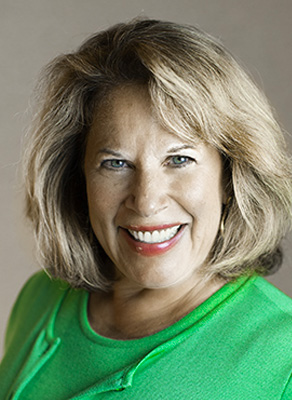Special Interview Series

Helayne Angelus
May 2016
Chair of the LEAD Advisory Board
Invest in your network
Women do not invest enough in their networks. And that’s something Helayne Angelus, chair of the LEAD advisory board, is committed to changing.
Helayne has a career spanning more than 30 years in the consumer goods and retail industry, as well as being the founder and former president of NEW – Network of Executive Women – in the US.
At Procter & Gamble, she was a driving force in building a much stronger presence for women throughout the business.
She believes LEAD can play a key role for the food industry, by filling a gap that has long existed in Europe.
Building better connections
“Both retailers and manufacturers have similar challenges – women in the upper echelons of their organisations do not have the chance to regularly share and create business opportunities,” she says.
LEAD can be part of the solution, by giving women access to role models, key business insights and learning opportunities to support them in the pursuit of their career goals.
A mission to change corporate culture
Helayne joined Procter & Gamble’s sales team in the late 1970s, at a time when only 3% of the firm’s leaders were female. P&G’s recruiters visited Columbia University, an all-male institution, in a search for new talent, but Helayne attended Barnard, which was all female. Through sheer determination she signed herself up on the all-male interview schedule – and got the job.
In time, Helayne embarked on a mission to drive a change in corporate culture to make it easier for women to achieve their professional goals, within an environment of support, coaching, mentoring and sponsorship.
When she left P&G 33 years later, women occupied one third of leadership team positions.
The key ingredients for success
Helayne strongly believes in the need to build diverse companies that reflect the consumers and communities they serve. In the course of her work to achieve this, she has identified the key ingredients that are critical for success:
- Commitment to gender diversity has to be driven from the top
- A strategic plan is required, to address how to advance women through recruitment processes, training, development programmes and job retention
- Personal reviews are critical for developing the talent pool, setting entry level requirements and planning for succession
- Existing policies and procedures should be challenged with a ‘why not?’ attitude
Diverse companies perform better
Research shows that diverse organisations outperform those that are homogenous. This reaches beyond gender to include age, sexual orientation and ethnic origin.
Helayne points out that those businesses which have women present in the C-suite also generate better financial returns.
The role of male leaders is also critical to attract, retain and advance women within their organisations. Helayne wants LEAD to be an inclusive environment, where men have a place, and where they too can benefit from training and personal development.
“Retailers need to think differently about how to provide more flexibility in the workplace for women who strive for career development but who also want to be present for their families, especially in more operational roles,”
Helayne’s step-by-step guide to career development
- Be clear about who you are, what you bring to the table and what you want. Then communicate that to all the people who need to know: your boss, your boss’s boss and those key stakeholders who can influence your career.
- Make sure you have a clear understanding of the expectations of every assignment. Get them all spelled out. Understand what success will look like. Make sure everybody who is going to evaluate you understands that is what you are going to deliver.
- Make your boss your biggest supporter and advocate. Invest in the relationship – understand what makes them tick. How can you meet their unmet needs? How can you make your boss succeed, and therefore how can your boss make you succeed?
- Have your own personal board of directors: mentors you can turn to for advice and encouragement.
- Ask the individuals who are responsible for your career – your boss and your boss’s boss – how you are doing against your objectives. That way, they know what you are achieving. Women fall down in this area because they don’t want to take the lead in it. Men do it all the time.
- Finally, over-deliver. Whatever you said you were going to do, do it better than other people and demonstrate you can add value in a lot of other areas. For me, succeeding in the business is a given. But what else can you do to distinguish yourself as a leader and to support the goals of the company and the organisation?



